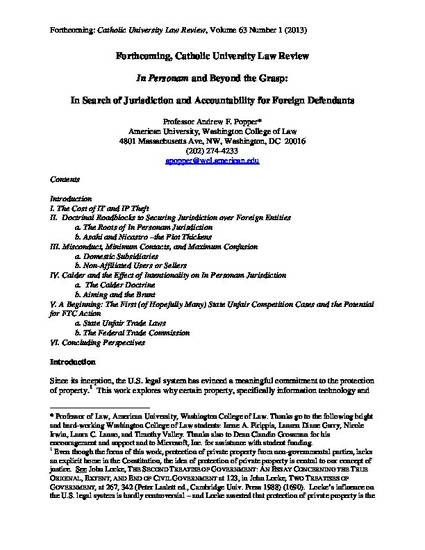
- Civil Procedure and
- Law
The focus of this article is on the difficulty of securing in personam jurisdiction over foreign entities who steal information technology and intellectual property (IT and IP). The value of stolen IT and IP is somewhere in the range of a trillion dollars over the last decade. Given the current inability to prevent those losses or deter meaningfully those engaged in the misconduct, the article explores the core of the problem: the difficulty of satisfying the minimum contact/fairness requirements of Article III courts. The article addresses several alternative approaches that might allow for more efficient protection of IT and IP. The first is an examination of Calder-effect jurisdiction based on the wrongfulness of the conduct. Characterized as IP and IT thieves, defendants fall in a special jurisdictional category: jurisdiction over perpetrators of intentional misconduct, allowing for a different jurisdictional calculus. A second approach, now underway in Massachusetts and California, is state initiated unfair trade enforcement actions. A final approach is for the Federal Trade Commission to initiate enforcement actions or issue rules or guidelines to help curb IT and IP theft. Any of the approaches, if successful, will have a stabilizing effect on the competitive market and can help avoid the loss of another trillion dollars in the next decade.
